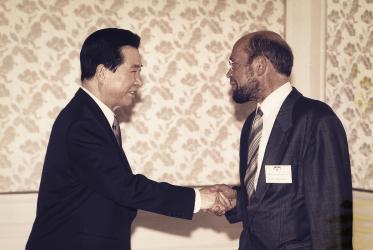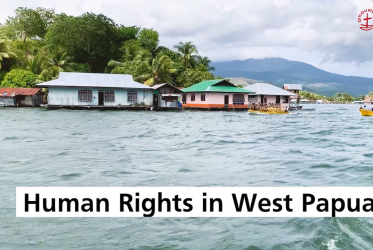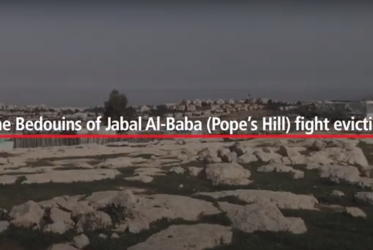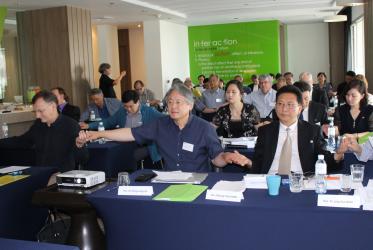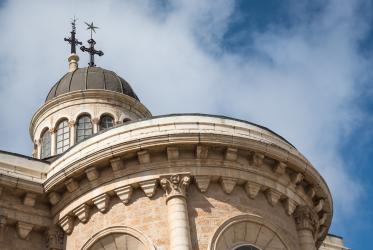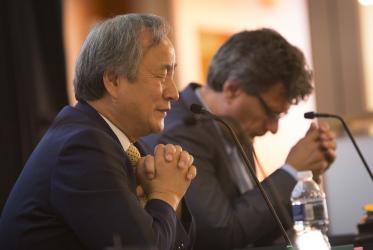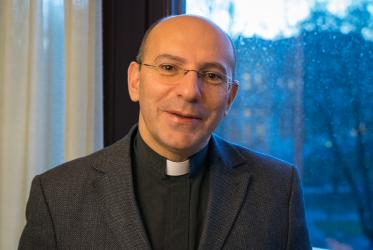Displaying 1 - 20 of 22
As Bethlehem prepares for Christmas, ‘it’s all about community’
08 December 2022
WCC video interview describes human rights crisis in West Papua
13 January 2022
In Lebanon, “without peace there is no justice”
21 July 2021
Video: Freedom to worship - Easter Initiative 2021
01 April 2021
Video: Khan Al Ahmar - Easter Initiative 2021
01 April 2021
Peace and unity on the Korean Peninsula matters globally
25 February 2021
Bishop Hee-Soo Jung: “Prayer is a radical action”
11 December 2020
Palestinian Christian peace worker yearns for courageous leaders
10 December 2020
A hopeful, but not optimistic Palestinian ecumenist
09 December 2020
Fr Jamal Khader: “We need to keep hope alive” in Palestine
25 November 2020
